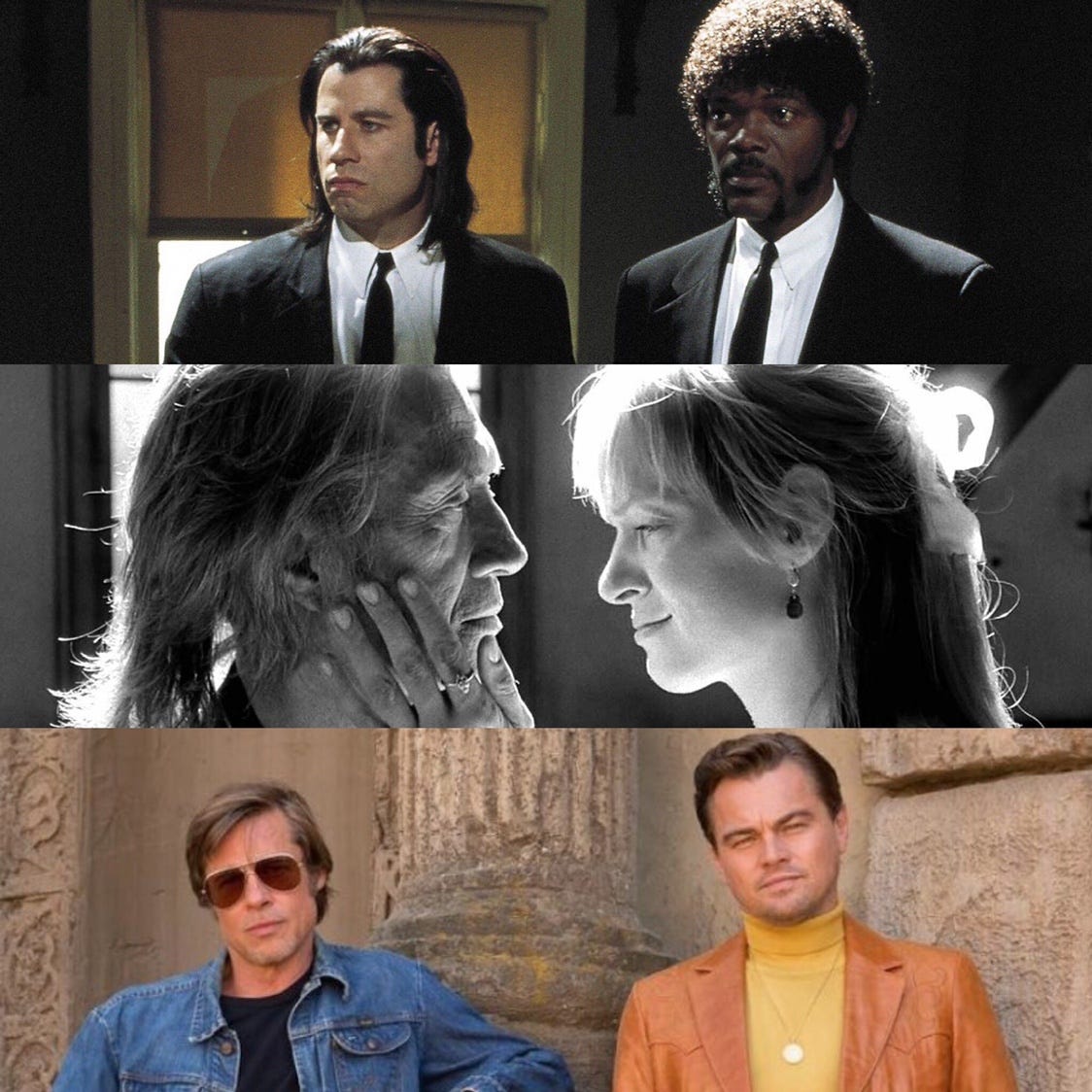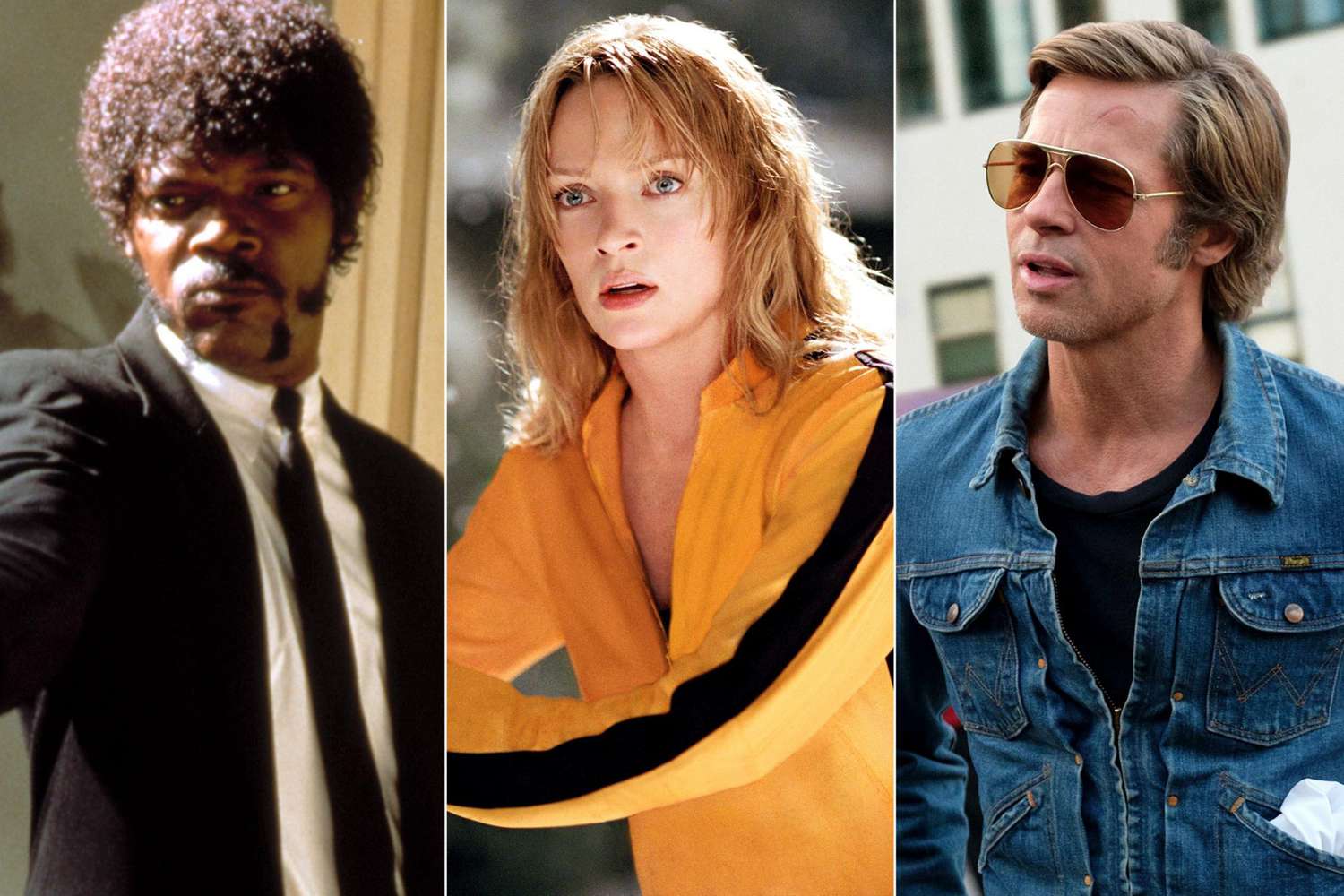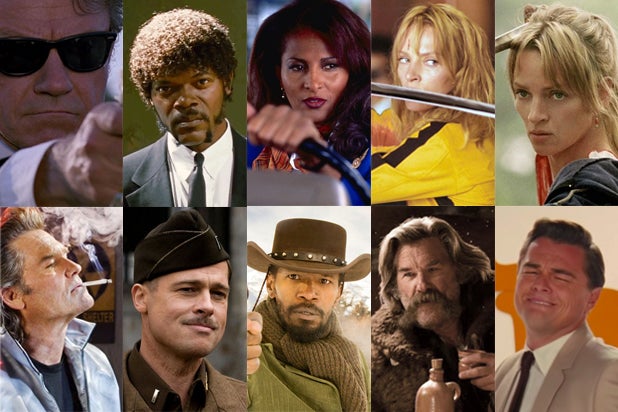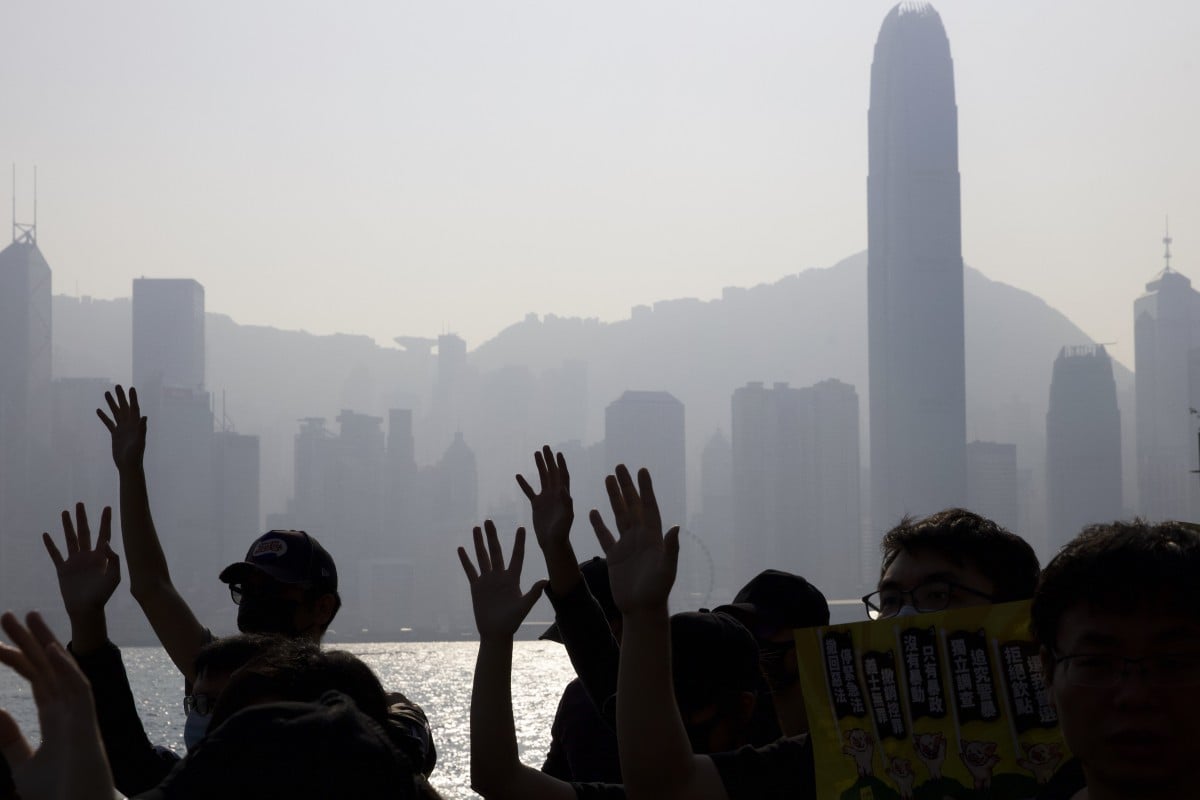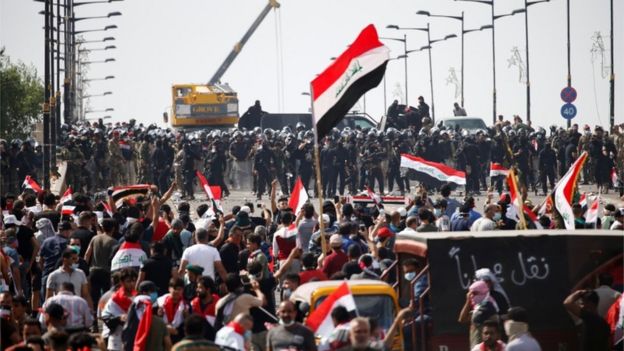I just came back from an hour-long walk. But I guess I can go again.
— Paramendra Kumar Bhagat (@paramendra) May 30, 2023
💰Pre-seed and seed investors: there are underrepresented founders looking to add us to their cap tables but don't know who we are. Leave your deets for them to reach out.
— Lolita Taub (@lolitataub) May 29, 2023
💁🏽♀️Investor type:
🔮Thesis:
🌱Stage:
💸Check-size:
🙌🏽Leads or follows:
🌎Geo:
✉️Contact:
I had to:
— Jon Brosio (@jonbrosio) May 29, 2023
• Read Seth Godin
• Study Justin Welsh
• Emulate Kieran Drew
• Replicate Alex Hormozi
To become Jon Brosio.
You become who you are by standing on the shoulders of giants.
Hearing someone created a deep fake of me.
— Dustin Moskovitz (@moskov) May 30, 2023
First of all, it's about time.
Second of all, please know that I will never call or text you and ask to talk immediately. A real deep fake would say "can we chat later in the week?" and then never follow up.
Why are food prices up? Giant grocery chains have gotten bigger — and corporate price gouging is now routine. We must enforce antitrust laws like the Robinson-Patman Act to keep groceries accessible and affordable for all Americans.https://t.co/vqE0oMvznJ
— Elizabeth Warren (@SenWarren) May 30, 2023
— Paramendra Kumar Bhagat (@paramendra) May 30, 2023
Why did I think you were an investor?
— Paramendra Kumar Bhagat (@paramendra) May 30, 2023
When I learnt that:
— Molly Lye 🤓 | Marketing Nerd (@Molly_Lye_) May 30, 2023
The best marketers understand psychology better than they understand technology.
It completely changed the game for me.
Tap into your dream buyers' emotions, and you won’t have a problem selling.
Third Le Meur launched 🚀 pic.twitter.com/QO6DYsfiAq
— Loic Le Meur (@loic) May 29, 2023
Why you shouldn’t use commas:
— George Ten (@GrammarHippy) May 30, 2023
Try this exercise:
1. Write a sentence with commas
2. Write the same sentence without.
What you’ll find is…
You need to CHANGE the STRUCTURE of the sentence. And it’ll be easier to read with no commas.
Try it. Right now.
Reductionism taken to its limits leads to conclusions that conspicuously is devoid of the complex interdependencies of ecological systems: pic.twitter.com/GWgceYw3Uv
— Carlos E. Perez (@IntuitMachine) May 30, 2023
In 2004 I added my college roommate and myself to Wikipedia's list of famous alumni of UC Berkeley. Then later that year the school sent out a fundraising brochure that included us alongside all the Nobel Prize winners. I was 24 and living in my parents' basement when the…
— Ryan Petersen (@typesfast) May 29, 2023
— Paramendra Kumar Bhagat (@paramendra) May 30, 2023
Nobody wants to see a boat in a driveway
— Nick Huber (@sweatystartup) May 30, 2023
I’d become president and put a lean on your house
— Nick Huber (@sweatystartup) May 30, 2023
Imagine the horror of someone wanting to use their property to grow vegetables - the mere thought makes me shudder!
— Alex ₿rammer (@AB_Brammer) May 30, 2023
You’re the worst kind of Karen. I bet you hide behind “HOA management” when you make complaints against your neighbors while smiling and waving in person. 🙄
🎯
— Alex ₿rammer (@AB_Brammer) May 30, 2023
I live in a HOA and I have a guy just like this that runs it. Most passive aggressive sad little man I’ve ever met. But his grass looks great and he always smiles and waves literally MINUTES after sending the nastiest emails complaining about me parking my RV in the…
I'd never live in an HOA neighborhood. In July the milkweed will bloom and you will see about 10 thousand monarchs here every day. Could never do this in a HOA. Makes no sense. pic.twitter.com/vkMYb6vBvm
— Tom Fisher (@TomFisher37) May 29, 2023
Why Hong Kong must ditch the US dollar peg and switch to the yuan now Hong Kong risks being increasingly led by US monetary policy, which could see property prices and the economy come crashing down ..... Switching to the yuan would mean stability and a unique chance to ride the currency’s rise before it becomes fully convertible ............. Hong Kong’s currency peg to the dollar is not sustainable. The city risks being increasingly led by US monetary policy as the utility of the fully convertible Hong Kong currency in meeting China’s demand for US dollars is fading. As global yuan demand grows, switching to that currency would boost Hong Kong’s financial fortunes. ........ With China’s interest rates expected to stay lower than US rates, due to lower Chinese inflation, embracing the yuan would stabilise Hong Kong’s asset markets. Sticking with a US-pegged currency, however, means exposure to volatility. Entrenched US inflation threatens to bring back dollar swings like in the 1970s and/or US interest rate surges like in the 1980s – the effect on Hong Kong could devastate its property market. ........... The yuan accounts for just over 2 per cent of the global payments system, and about the same in global forex reserves. China accounts for about 18 per cent of the world economy and around 30 per cent of global manufacturing output. The yuan’s share in global payments and currency reserves is bound to rise. Before it becomes fully convertible, Hong Kong has a unique opportunity to ride its rise and consolidate its status as a global financial centre. ........... if Hong Kong sticks to the dollar peg, its economy and asset markets could run into a severe storm. ......... Now US interest rates have gone past 5 per cent, their knees have begun knocking, fearing a financial collapse. They are likely to pause rate rises for a while, but this will allow inflation to become entrenched, seeding future storms. ............ The Anglo-Saxon economies have the most toxic brew for inflation: a structural labour shortage, strong corporate pricing power and a massive monetary overhang. .......... With falling real wages and rising welfare benefits, the worker shortage will remain as long as real wages fail to keep pace with inflation, giving workers more power to switch jobs and push up wages – they are unlikely to absorb the loss to put a lid on inflation. ....... The market consolidation and economic monopolisation of the past three decades have also boosted the power of businesses, letting them pass on rising labour and material costs through price increases. ........ As labour and businesses both have strong pricing power, real interest rates must be high to hold off a wage-price spiral. But real interest rates remain negative. Worryingly, the massive monetary overhang from past quantitative-easing exercises means plenty of fuel for inflation. ....... If US inflation becomes entrenched at 5 per cent, the Fed could panic and raise interest rates to 7 per cent, lifting bond yields to the same level. Such rates would crash Hong Kong’s property market, like in 1998. ......... Hong Kong does not have much time to inoculate itself from the coming financial storms. If it does not take cover ahead of the time, like before 1997, it will be a sitting duck.
What is your problem with veggies? pic.twitter.com/oD4lAcMmWA
— Ryan Rzepecki (@ryrzny) May 30, 2023
At the risk of being too earnest, may I say that DeSantis's boasts that he "will destroy leftism in this country" and "Florida is where woke goes to die" are creepy? I'm neither Left nor woke, but in a free country, individuals and groups do have a right to be Left or woke.
— Bill Kristol (@BillKristol) May 29, 2023
Many things will change once American podcasts can be instantly translated using AI with the same voice as the original podcaster but in 200+ local languages
— @levelsio (@levelsio) May 30, 2023
Could be a @Spotify feature
A lot of Spanish, Brazilian, French, German, Dutch, Korean, Japanese podcasters are simply…
America is not the pinnacle of creativity, in fact the reverse of what you mention has also been happening for years. American media and companies taking popular art from Asia and turning them into shows, movies, music, etc. Translation of a concept to new audiences.
— Joe Turner (@itsjoeturner) May 30, 2023
Super-human AI is nowhere near the top of the list of existential risks.
— Yann LeCun (@ylecun) May 30, 2023
In large part because it doesn't exist yet.
Until we have a basic design for even dog-level AI (let alone human level), discussing how to make it safe is premature. https://t.co/ClkZxfofV9
Glory to all our warriors who defend the Ukrainian sky! Thank you to everyone in the world who helps protect people and our children from Russian terror! https://t.co/4bNOdv5T4v
— Володимир Зеленський (@ZelenskyyUa) May 29, 2023
Here's an example:
— Dickie Bush 🚢 (@dickiebush) May 30, 2023
(This thread literally changed my entire life's trajectory)https://t.co/rc4t4Glziy
2/ Early COVID tweets
— Dickie Bush 🚢 (@dickiebush) September 2, 2020
• @Balajis was early to sound the alarm bells re: COVID-19.
• Meanwhile @Recode was writing articles chastising the tech community.
• His indicator? If China was willing to sacrifice economic growth, this was serious.
Look 👇🏼https://t.co/X5EVjifY6H
7/ Thoughts on Inflation
— Dickie Bush 🚢 (@dickiebush) September 2, 2020
• Inflation is here - just not evenly distributed.
• Everything the internet touches is hyper-deflationary.
• Everything the state touches is inflationary - law, education, medical.
Corollary: as the internet takes over the state, prices go down.
4/ The Year the Internet Started: 2020
— Dickie Bush 🚢 (@dickiebush) September 2, 2020
• What was inevitable has merely been accelerated.
• 20 years of trends have been pulled forward into six months.
• This year the internet will disrupt every industry is was on track to over the next 20.https://t.co/cLNRwjKIV7
Another habit that served me well as a beginner:
— Dickie Bush 🚢 (@dickiebush) May 30, 2023
Any time I listened to a piece of content, I forced myself to create a piece of content.
This led to writing a thread recapping a podcast I listened to every day for 30 days (back in August 2020).
Completely changed my life.
Visit Nepal — someone said it perfectly :) pic.twitter.com/ScNa7iHYg2
— Rudra Pandey (@rudrarajpandey) May 29, 2023
Russian Unrest Looms Over Prolonged Ukraine Invasion: A Warning from Wagner's Chief
— Niels Groeneveld (@nigroeneveld) May 29, 2023
In an unprecedented critique of Russia's military readiness, Yevgeny Prigozhin, the chief of the private military company, Wagner, warns that a new "revolution" could threaten Russia if its… pic.twitter.com/bTCavIh3ix
Advice For People in their 20s:
— Parker Worth ⚡️ (@worth_parker) May 29, 2023
•Network full time
•Learn to speed read
•Learn 2 skills and combine them
•Challenge your opinions and beliefs
•Surround yourself with 5 like-minded people
•The best thing you can do to be smarter - exercise
Anything you’d add?
18 hours into visiting NYC and 11 yo has already eaten three giant pretzels. He says the one from Schaller & Weber is the best so far.
— Paul Graham (@paulg) May 29, 2023
Poland has just passed an unconstitutional measure that violates basic principles of the rule of law. It empowers an unconstrained extrajudicial commission (a bit like a Stalinist troika) to remove the opposition from participation in public life. https://t.co/1oVqiH4ade
— Timothy Snyder (@TimothyDSnyder) May 29, 2023
Long-form content is superior to short-form content.
— Chenell Basilio (@chenellco) May 29, 2023
Change my mind.
When you tweet your blog post, you have both.
— Paramendra Kumar Bhagat (@paramendra) May 29, 2023
There were 18,538 gunshots in a 77 block area of St. Louis between 2014 and 2018. That's 48 gunshots per block per year. Almost one a week. https://t.co/lpkAkuHJKw
— Paul Graham (@paulg) May 29, 2023
‘’People don’t buy products, they buy stories’’ is a lie.
— Christelle Delli (@IamChristelleD_) May 29, 2023
Or is it?
That’s what writer Rob Walker wanted to find out.
So, he ran a powerful experiment.
The results were mind-blowing👇
- A must-read thread if you’re interested in storytelling 🧵-
He put these objects up for auction on eBay using the fictional stories in the item descriptions.
— Christelle Delli (@IamChristelleD_) May 29, 2023
A few weeks later, he had sold all of these items for $3,612.51.
Achieving a 2,799% ROI just by crafting stories!
Was Rob Walker a marketing genius?
This is what a "free-speech absolutist" looks like? Under Elon Musk, "Twitter has approved 83% of censorship requests by authoritarian governments." such as criticism of the ruling party in India and Turkey. https://t.co/ROQjh8trPJ pic.twitter.com/kMaj90Tv2d
— Kenneth Roth (@KenRoth) May 29, 2023
I've analyzed hundreds of Twitter accounts by now.
— Sohaib Albadawee (@albadawee) May 28, 2023
All the fastest-growing ones do the following:
1) They do things others can't do.
2) They do things, others aren't willing to do.
2) They say things, others aren't willing to say.
Stop chasing and start attracting.
Prompt engineering is a high art and I don't expect that to change even as models get more powerful.
— Adam D'Angelo (@adamdangelo) May 28, 2023
Lot of noise about @RonDeSantis announcing & discussing his Presidential bid on this platform.
— Elon Musk (@elonmusk) May 26, 2023
But you what isn’t noise? Setting an all-time record for fundraising!
Worth considering for announcements in general. https://t.co/8cGlxiHhHS
3M views to the event. Impressive.
— Paramendra Kumar Bhagat (@paramendra) May 26, 2023
I’ve always resisted apple products because of their fanboy culture.
— Kieran Drew (@ItsKieranDrew) May 26, 2023
But if there’s one thing I’ve learned about business over the past 2 years, it’s that there’s no smoke without fire.
Mac it is.
Goodbye windows. https://t.co/w9nqfkcffp
Bad timing. Co-pilot.
— Paramendra Kumar Bhagat (@paramendra) May 26, 2023
Like yourself.
— Paramendra Kumar Bhagat (@paramendra) May 26, 2023
To those who think AGI is upon us:
— Yann LeCun (@ylecun) May 26, 2023
1. why don't we have level-5 autonomous driving?
Any 17 year old can learn to drive in 20 hours of training.
2. Why don't we have domestic robots that can clear the dinner table and fill the dishwasher?
Any 10 year old can learn to do that in…
The attacks against DeSantis are not landing
— Elon Musk (@elonmusk) May 26, 2023
Nuggets of wisdom of how AI will change how we interact with books. Stay tuned for massive changes! https://t.co/Jvxx3Hl2Vw
— Carlos E. Perez (@IntuitMachine) May 26, 2023
Do you have an extra $800 lying around? That's how much more you owe as your share of the national debt since January 12th—when I first called on President Biden to negotiate.
— Kevin McCarthy (@SpeakerMcCarthy) May 26, 2023
His delay has real consequences. His default would be even worse.
My new biggest flex is that I mentioned to my best friends mom to buy NVIDIA ~2 years ago and today she texted me that she made enough to finally renovate her kitchen
— Alex Friedman 🤠 (@heyalexfriedman) May 26, 2023
Hearing that russia is preparing a provocation at Zaporizhzhia Nuclear Power Plant, which they will naturally blame on Ukraine. Let's get the word out
— Paul Massaro (@apmassaro3) May 26, 2023
Hot take: Not being able to code can actually be an advantage for PMs because it forces them to stay closer to the problem than the solution.
— Carl Vellotti (@carlvellotti) May 26, 2023
(This might be me coping.)
Nvidia co-founder Jensen Huang (黃仁勳) walking through Taipei's night market last night as Nvidia's market cap reaches 1T.#taipei #taiwan pic.twitter.com/8WZSv1k2p8
— CW Lin (@_cw_lin) May 26, 2023
Congresswoman @AOC is a community gem. Told her we’re proud of her. Keep speaking truth to power. Keep showing us that girls from the hood are magic ✨We see you. And are rooting for you, always. I said this as my hands shook and eyes filled with water. Total fan-girl, y que! pic.twitter.com/kBVSrD7zZ1
— Stephanie Castellanos (@purposehustle) May 26, 2023
We only needed five Republicans to join all 213 Democrats this morning to avoid a catastrophic default, but they all left town this morning - leaving 350 million Americans hostage. pic.twitter.com/vQ5L0VOfOD
— Rep. Dean Phillips 🇺🇸 (@RepDeanPhillips) May 25, 2023
Started a side hustle last month.
— Jay ⛽️ (@jelanifuel) May 26, 2023
Started cold emailing.
Closed $9.2k in sales so far with 3-4 more uncalculated deals in the pipeline.
It’s pretty much fully automated.
High ROI in terms of time and cash.
Cold email is nutzo.
cucumber too
— Paramendra Kumar Bhagat (@paramendra) May 28, 2023
Here's my conversation with Neil Gershenfeld, director of MIT's Center for Bits and Atoms, all about self-assembling and self-replicating robots, and the future of fabrication at the boundary of physics and computation. This was fascinating & inspiring! https://t.co/2WuC8qJPvM pic.twitter.com/As5YnstsCe
— Lex Fridman (@lexfridman) May 28, 2023
Wow! The hate storm on this tweet clearly shows how most people are afraid of and don’t understand what is about to happen.
— Linus (●ᴗ●) (@LinusEkenstam) May 28, 2023
There is also clearly a world outside the AI bubble that I finally pierced through, and I do not want to stay there.
The ignorance and hate is not… https://t.co/eOfKLAxU2e
Yes salt on cucumber is SO GOOD!!
— How to Make Friends (@nickgraynews) May 28, 2023
and if you can tolerate it, some chilli powder too
— Paramendra Kumar Bhagat (@paramendra) May 28, 2023
You’re such a numbskull. Please point out where we had an actual choice and we will reverse it.
— Elon Musk (@elonmusk) May 28, 2023
explained my startup at a party last night, and dude was like “why aren’t you working on ai”
— Danielle Fong 💁🏻♀️ (@DanielleFong) May 28, 2023
for the record (a) i am working on and with ai!
(b) the world, including ai, is literally bottlenecked on not having super dense, cheap energy storage. everything from robots to drones…
Oh, Republicans want to reduce the deficit?
— Rep. Pramila Jayapal (@RepJayapal) May 28, 2023
I’ve got an easy idea – tax the rich.
i think metlife tn is getting cornelia street on piano (since we already have live version from paris on guitar) and a speak now surprise song
— Meagan Loyst 🧚♀️ (@meaganloyst) May 28, 2023
i will be unwell listening to the live streams tonight
raise the price instead
— Paramendra Kumar Bhagat (@paramendra) May 28, 2023
I often wonder if @elonmusk would have chosen to do Biotech if Biology was where it was today when he was in college?
— NIMI VASHI (@nimivashi15) May 28, 2023
The thin blue line flag is a hate symbol - that should both folks more than the profanity. https://t.co/kCgZmSGTBV
— Alexis Soterakis (@asoterakis) May 28, 2023
Don’t Die from Something Stupid: My 4th Longevity Practicehttps://t.co/Uu2O8FGwoB
— Peter H. Diamandis, MD (@PeterDiamandis) May 28, 2023
I'm not a sports guy, but one of my favorite sayings is:
— Peter H. Diamandis, MD (@PeterDiamandis) May 28, 2023
You've got to skate to where the puck is going to be.
Congratulations to @RTErdogan. I look forward to continuing the strong collaboration between our countries, from growing trade to tackling security threats as NATO allies.
— Rishi Sunak (@RishiSunak) May 28, 2023
💰 Founders reminder: to pay yourself! If an investor tells you not to, run the other way.
— Lolita Taub (@lolitataub) May 28, 2023
An easy way to write more Twitter content:
— Justin Welsh (@thejustinwelsh) May 28, 2023
1. Write a Tweet
2. Rewrite it in 5 different ways
3. Schedule it once per month for 5 months
4. Repeat.
Learn to say 1 thing 1,000 ways.
You are not using the right prompts. Take my course.
— Paramendra Kumar Bhagat (@paramendra) May 28, 2023
Awesome ideas here, Jacob,
— Justin Welsh (@thejustinwelsh) May 28, 2023
Easy peasy.
— Justin Welsh (@thejustinwelsh) May 28, 2023
Things you’ll feel when building a startup:
— Andrew Gazdecki (@agazdecki) May 28, 2023
You’ll feel stressed out.
You’ll feel like you’re failing.
You’ll feel imposter syndrome.
You’ll feel like giving up.
It’s not glamorous or easy.
Every founder feels this. It’s normal.
So stay positive and keep going.
Today, 🇺🇦 went through one of the largest 🇷🇺 attacks by Shaheds. During this terrorist attack, the most powerful strike was aimed against the Kyiv region. This is how 🇷🇺 celebrates the day of our ancient Kyiv...
— Володимир Зеленський (@ZelenskyyUa) May 28, 2023
Throughout its history, Kyiv has seen various meannesses from… pic.twitter.com/TbZfnWWFIh









